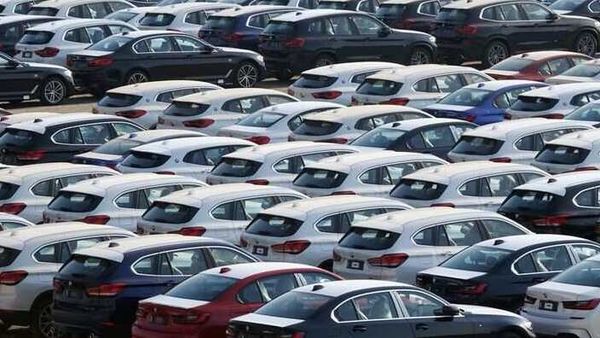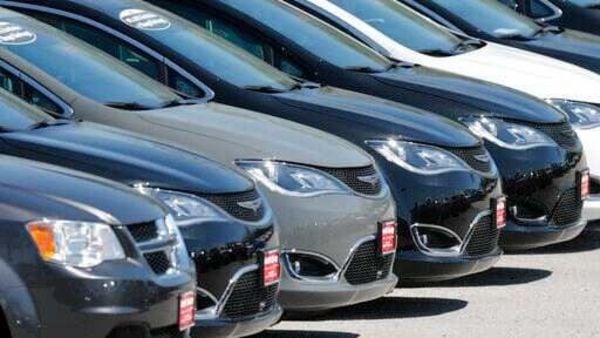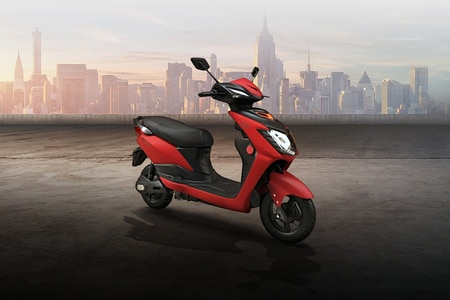Pricier vehicles seen driving rebound in US auto market


Demand for higher-priced vehicles from retail buyers at the end of 2020 helped lift US auto sales out of a springtime slump and buffered the impact of a sharp drop in fleet sales to rental-car companies.
Automakers likely sold about 15.9 million new vehicles on a seasonally adjusted annualized rate basis in December, down 4.7% from a year ago, according to an average of five market researcher forecasts. Unexpectedly strong retail sales in the third and fourth quarters are likely to have bolstered the market despite an uncertain economic outlook and the lingering pandemic.
Also check these Bikes
Most automakers, including General Motors Co. and Toyota Motors Corp., are expected to report their fourth-quarter US sales tallies Tuesday. Tesla released its global deliveries on Jan. 2 and Ford Motor Co. will post its sales numbers Jan. 6.
Also Read : Kia looks at storming US market with force in 2021, has 5 car launches planned
The resilience of the US market -- which saw annualized sales plunge to more than 40-year lows in April as automakers temporarily closed factories and showrooms -- has buoyed profits at automakers and kept dealer inventories tight.
“Strong retail sales, combined with record transaction prices and low manufacturer discounts, is good news for manufacturer profitability," Thomas King, J.D. Power’s head of analytics and data, said in a statement.
Rising Sticker Prices


Buyers are trading up for more expensive rides. Sport utility vehicles and pickup trucks are on track to make up 79% of total sales in 2020, up from 75% a year ago, estimated J.D. Power and LMC Automotive in a joint forecast. Sedans accounted for more than half the US market in 2010, but now are projected to drop to just one of every five new vehicle sales.
The cost of buying a new car or truck continued to increase, with average transaction prices climbing an expected 9% in December to a record $38,077, or 20% higher than five years ago. Higher sticker prices weren’t offset by more generous dealer discounts as average incentive spending fell by an estimated $585 compared to this time last year, J.D. Power and LMC said.
Also Read : The new Genesis GV80 SUV isn't sexy, but it is luxury enough
Premium brands have been among the biggest beneficiaries. Fiat Chrysler Automobiles NV’s Alfa Romeo nameplate, Tesla Inc. and Zhejiang Geely Holding Group Co.’s Volvo Car AB unit all will likely log sales gains over 2019, according to TrueCar. Brands with the fastest-rising prices included Volkswagen AG units Audi and Porsche, BMW AG’s eponymous marque and Daimler AG’s Mercedes-Benz.
“Luxury vehicle sales were an unexpected sales story for 2020, with higher-income Americans, some of whom were not as financially impacted by the pandemic, delivering strong luxury vehicle purchases this year," Nick Woolard, TrueCar’s director of OEM analytics, said in a statement. “Even Lamborghini broke sales records in 2020."
Fleet Weakness
Fleet sales to corporate customers such as rental car companies have slumped, reflecting weak demand from business travelers. December fleet sales are likely to have dropped 30% from a year ago and account for just 11% of total sales, almost half of the typical amount, Ryan Brinkman, an auto analyst at JPMorgan, wrote in a Dec. 29 research note.
Total sales last year likely came to 14.5 million new vehicles, down about 15% from 2019, and the lowest since 2012, according to the average forecasts of four of the market researchers.








 60 km/charge
60 km/charge

 124.0 cc
124.0 cc 47.6 kmpl
47.6 kmpl
















